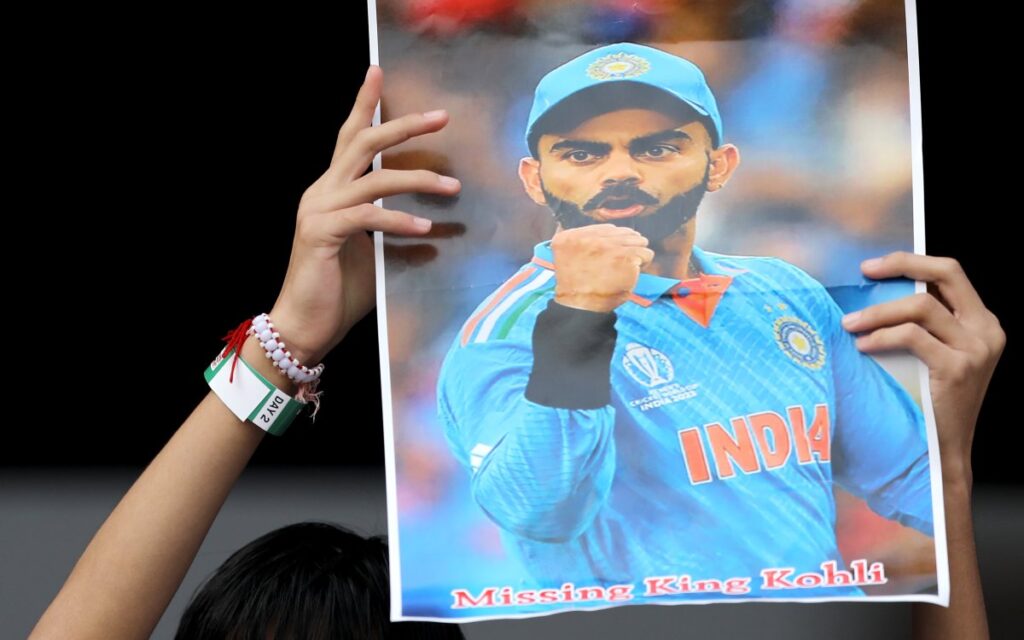Former New Zealand: Former New Zealand batter Ross Taylor has heaped praises on former India captain Virat Kohli, labelling him as the “global superstar in the world of sports” and not just cricket. The former India captain enjoys a huge fan following on social media. Taylor while speaking about the impact of social media on a cricketer’s life said that players are now more accessible and it is not a bad thing in the modern-day era.
Taylor, who has played 112 Tests, and 236 ODIs for New Zealand, shared his insights in Episode six of the podcast series “180 Not Out.
“Players are putting outposts endorsing products and things like that. Who would have thought of that in 2008? Someone like Kohli, who is a superstar in the world of cricket, but is also a global superstar in the world of sports. In terms of Instagram and social media, he’s up there with Ronaldo and Messi!”
“Yeah, I think you are more accessible, I don’t think sportsmen are just as critiqued. I think movie stars, Bollywood stars, politicians are all under the microscope now because of social media but I don’t think that is a bad thing,” Taylor told Raman Raheja, a sports fan, sportspreneur, media professional, and creator who put together this Podcast “180 Not Out”.
Former Australian pacer Brett Lee said the mobile camera was both the best thing and the worst thing to get invented in the advent of social media. Lee traced the early era of social media and how it changed in the last few years.
“In the early 2000s, when the phones came in, people would take a photo with you. There was an autograph and a photo. In mid-2015 and 2020, what happens now is that the players are always on show now. Anyone that is playing in the Indian Premier League, they are always on show, they go out for dinner, and someone comes with a phone camera,” said Lee.
“The phone camera was the best thing and the worst thing ever invented. The best thing is to capture beautiful memories with your family and friends, and as a spectator and lover of the sport, you also capture those moments. But also, the privacy now, for players, has been cut in half because you are on show everywhere.
“If you are having a dinner with your family, your loved ones, friends…someone takes a snap and it goes instantly all over the world. Now, you also have to be able to deal with that and accept that,” he added.
Former Australian cricketer Michael Bevan also graced the podcast series. The star batter emphasised that social media might impact the performance of young players.
“The younger generation uses social media that would impact their situation and circumstance and career. They would have to make a decision on whether they want to read the comments, or how much they want to post,” said Bevan.
“I could imagine it would be extra difficult for some of the modern-day players, with T20 cricket, with social media…but as a player, you’ve always got to make the decision on how you handle. Do you want to read things or do you not want to read things? That’s the most important thing… to understand yourself, and to understand your game,” he added.
The ground-breaking podcast series by Raman Raheja is diving deep into the rich 180-year history of cricket, tracing its evolution from its colonial origins to its current stature as a global phenomenon.
In subsequent episodes, the “180 Not Out” podcast will cover a diverse range of topics including the sport’s impact on players, leagues, controversies, commercialisation, challenges, coaching, fitness, demographics, formats, records, and future prospects.
Shot at the backdrop of the Legends League Cricket (LLC), hosted by Raman Raheja, it is perhaps going to be the biggest Cricket Podcast featuring 60+ Legends in a single season.


